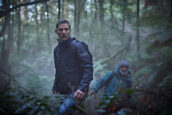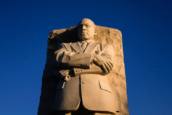
Honouring the apology to the Stolen Generation
One of the difficult things for us to acknowledge in this country is the racism that has underpinned our history, and still flows through our public discourse. It is a racism that provides the ‘logic’ of the stolen generation.
The racism that marked slavery in the US, and which continues to mar that country, was about the control of labour and the narratives that justified that abuse. It was a myth about the lesser humanity of black people, and the normalcy of whiteness.
In Australia, while there were issues about labour, the central issue was land. The narrative that justified the taking of land was that there were no people who owned land in any recognisable way. This was ‘terra nullius’. This was a racism of invisibility and non-being – physically and culturally. It constructed the ‘real Aboriginal’ as a traditional, full-blooded person, who would die out because no-one could return to that state. Other First peoples would be absorbed and assimilated, and there would be no challenge to the claim to occupy the land; no questions about theft or legitimacy. It left the way open for radio shock jocks and One Nation Senators to question who can claim to be an Aboriginal person; to deny identity and existence.
The Stolen children were part of that ‘making invisible’. On May 26 1997 the report Bringing Them Home was tabled in the Federal Parliament. The report detailed the story of the removal of the children, and since then there has been a Sorry Day celebration on May 26th. On 13 February, 2008 Prime Minister Kevin Rudd apologised for the grief and loss that had been afflicted on the children, their families and the wider community.
It is timely to remember the apology and its contribution to reconciliation. It was for many people an important day that touched their souls. Yet, as Rudd made clear, and as subsequent inaction illustrates, the apology was not the beginning of a process of healing and building a new community. It was, rather, an attempt to draw a line under the issue; to say “we have apologised, so now we can leave this behind as a country”.
But history is never just a past thing; it always finds its way into the present. People suffer across generations, as we know from any situation of abuse. Reconciliation is not simply about broken relationships; as if both sides should do something to mend the hurt. Land has been stolen, cultures have been destroyed, children have been taken away. People did things to other people, and at the very least reconciliation requires acknowledgement, confession and reparation – real steps to put things right.
So that is the challenge to us at this time. So far talk has been cheap. Now we need action. We need to close the gap. We need to stop taking the children, and putting the youth in gaol. We need to recognise sovereignty and make a treaty. We need a new way.
Rev. Dr Chris Budden, Interim National Coordinator, Uniting Aboriginal and Islander Christian Congress.
- Categories: Features
- Tags: auspol, First Peoples




























































